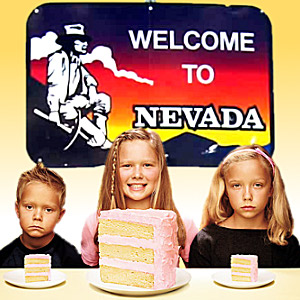 Another week, another court filing in the lawsuit brought by the major North American professional sports leagues and the NCAA against New Jersey’s plan to offer single-game sports betting within its borders. Two weeks ago the state filed a response to the leagues’ request for summary judgment, and now the leagues’ have filed their response to the state’s response and to the state’s own request for summary judgment. Confused yet?
Another week, another court filing in the lawsuit brought by the major North American professional sports leagues and the NCAA against New Jersey’s plan to offer single-game sports betting within its borders. Two weeks ago the state filed a response to the leagues’ request for summary judgment, and now the leagues’ have filed their response to the state’s response and to the state’s own request for summary judgment. Confused yet?
NorthJersey.com’s John Brennan appears to be the only person who has so far managed to get a hold of the leagues’ 92-page filing, so we’re relying on his interpretation of the wherefores, notwithstandings and other legal tongue gymnastics. What we don’t understand is the sheer length of the document, given that the leagues were supposed to limit their response to 25 pages. True, New Jersey’s most recent filing exceeded its 40-page cap by 8 pages, but that’s a 20% overage, not the 268% bonus the leagues submitted. We can only assume the document got a contact high from all those steroids lying around the league offices.
RATIONALIZING IRRATIONALITY
Anyway, on to the meat of the leagues’ argument, such as it is. The leagues saw fit to rubbish the state’s “wildly excessive statement of purported material ‘facts’ that extends far beyond the bounds of zealous advocacy.” This has left the leagues “improperly burdened” with the task of setting the record straight, despite “the limited time” they have at their disposal. (District Court Judge Michael Shipp has scheduled oral arguments to begin Dec. 18, the state is scheduled to issue its first sports betting licenses on Jan. 9 and the federal government has until Jan. 20 to weigh in on the debate.)
Chief among the leagues’ aims is to poke holes in the state’s argument re the unconstitutionality of PASPA, the 1992 federal edict that essentially took a snapshot of existing state-level sports betting laws then laminated it, forever restricting single-game sports betting to Nevada and some half-assed parlay nonsense to three other states. New Jersey argued that this amounted to the federal government favoring some states over others, but league attorney William O’Shaughnessy maintains there is “nothing irrational or arbitrary about Congress’ decision to protect those states and the reliance interests that their pre-existing laws had created, while at the same time advancing the federal policy to stop the spread of sports gambling.”
O’Shaughnessy also rubbished New Jersey’s “frivolous” argument that the leagues lacked the necessary standing to bring their suit. O’Shaughnessy said the leagues “undisputedly” had a dog in this hunt because the games on which the state plans to take wagers “belong to the Sports Organizations.” O’Shaughnessy also rejected the state’s argument that the leagues’ support and promotion of fantasy sports amounted to the leagues being a little bit pregnant with a sports betting baby. “None of these games even require that any money be paid in order to participate.” The NCAA dismisses the argument that it promotes groups that organize March Madness brackets that could be (and are) used for betting purposes by noting that the NCAA merely provides links on its website to these groups, it doesn’t operate the brackets itself. See, the NCAA doesn’t run a gambling site, it merely runs a gambling affiliate site.
O’Shaughnessy also claimed the state hadn’t presented any original evidence as to the pervasiveness of illegal sports betting, but had provided only “third party estimates” and “inadmissible hearsay.” This last claim is noteworthy because the leagues’ persistent mantra about the alleged damage sports betting inflicts on the ‘integrity’ of their games has so far been backed up only by the statements of league officials, who remind us very much of the people who swore that a certain butt-naked emperor was actually wearing a really spiffy set of threads. But we digress…
Also getting somewhat off track (one can see how this puppy got to 92 pages), O’Shaughnessy felt compelled to slam New Jersey’s decision to forego an Oliver Twist-style ‘please sir… I want some more’ cap-in-hand constitutional query re PASPA in favor of the more provocative strategy of just passing a damn sports betting law and announcing a date for issuing licenses. In O’Shaughnessy’s view, New Jersey “chose to break the law for its own economic ends and to challenge anyone to try to stop them.” We sincerely hope New Jersey’s oral argument response to this is ‘well, duh…’